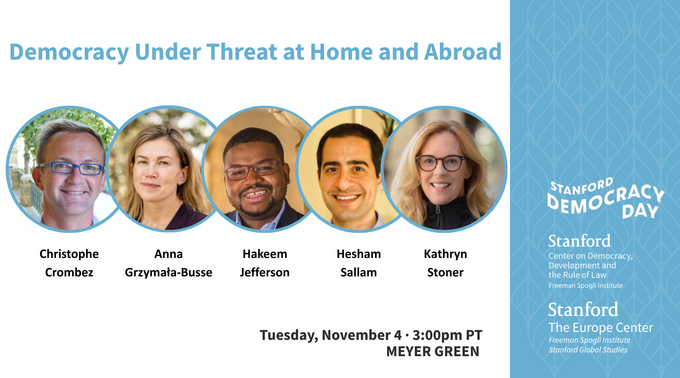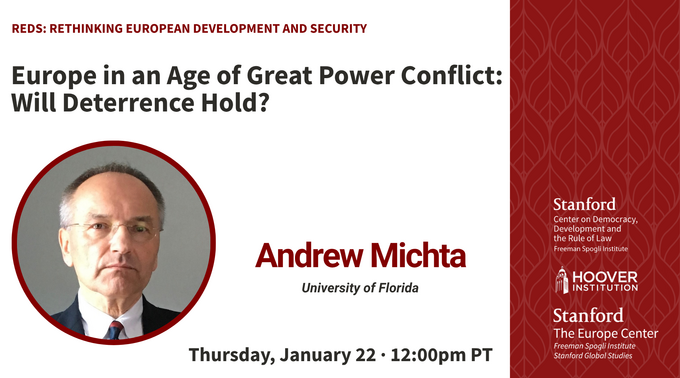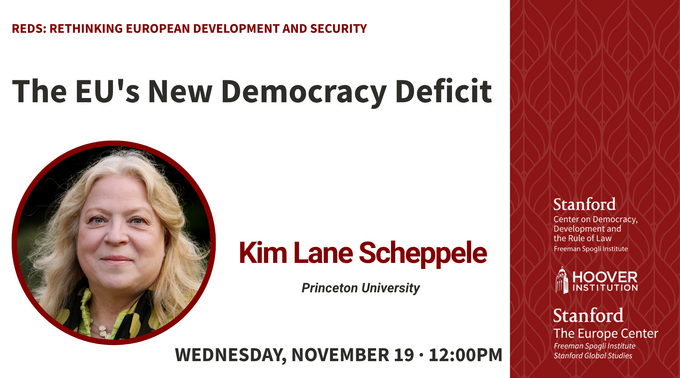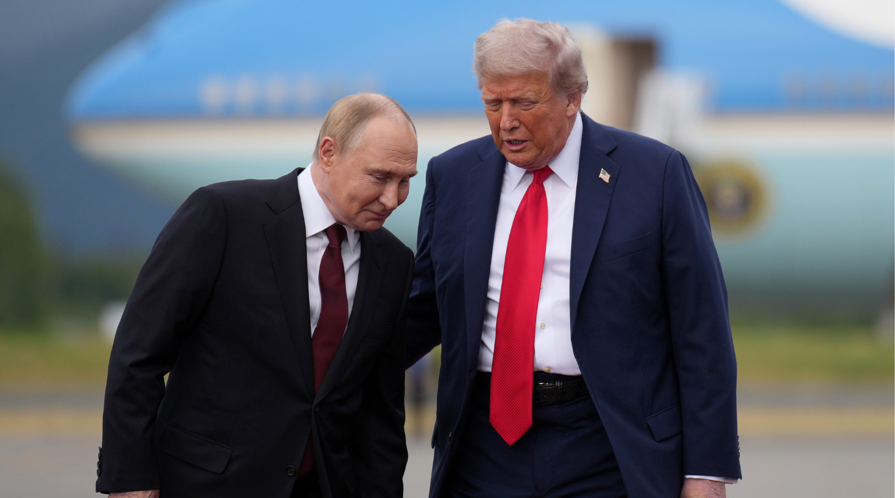Lucan Way | REDS Seminar: Economic Dependence and Authoritarianism: Russia in Comparative Perspective
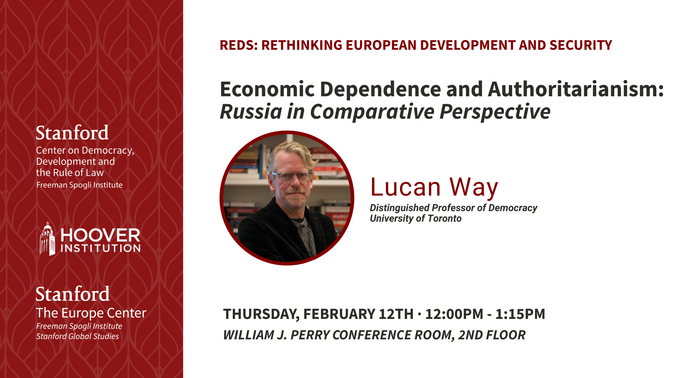
Drawing on a statistical analysis and case studies, Semuhi Sinanoglu, Lucan Way and Steven Levitsky argue that incumbent control over the economy fosters authoritarianism by undermining the popular, financial and organizational bases of opposition activity. The concentration of economic resources in the hands of state leaders – whether it emerges out of statist economic policies, oil wealth, or extreme underdevelopment – makes citizens and economic actors dependent on the whim of state leaders for survival. Indeed, poor, statist and/or oil rich states account for the overwhelming share of closed autocracies today. To establish the plausibility that economic dependence is a major source of authoritarianism, the paper presents a statistical analysis of authoritarian durability and evidence from four diverse cases – Belarus, Russia, Kuwait, Togo, Burundi -- that such dependence has weakened opposition.
Lucan Ahmad Way received his BA from Harvard College and his PhD from the University of California, Berkeley. Way’s research focuses on global patterns of democracy and dictatorship. His most recent book (with Steven Levitsky), Revolution and Dictatorship: The Violent Origins of Durable Authoritarianism (Princeton University Press) provides a comparative historical explanation for the extraordinary durability of autocracies (China, Cuba, USSR) born of violent social revolution. Way’s solo-authored book, Pluralism by Default: Weak Autocrats and the Rise of Competitive Politics (Johns Hopkins, 2015), examines the sources of political competition in the former Soviet Union. Way argues that pluralism in the developing world often emerges out of authoritarian weakness: governments are too fragmented and states too weak to monopolize political control. His first book, Competitive Authoritarianism: Hybrid Regimes after the Cold War (with Steven Levitsky), was published in 2010 by Cambridge University Press. Way’s work on competitive authoritarianism has been cited thousands of times and helped stimulate new and wide-ranging research into the dynamics of hybrid democratic-authoritarian rule.
Way also has published articles in the American Journal of Political Science, Comparative Politics, Journal of Democracy, Perspectives on Politics, Politics & Society, Slavic Review, Studies in Comparative and International Development, World Politics, as well as in a number of area studies journals and edited volumes. His 2005 article in World Politics was awarded the Best Article Award in the “Comparative Democratization” section of the American Political Science Association in 2006. He is Co-Director of the Petro Jacyk Program for the Study of Ukraine and is Co-Chair of the Editorial Board of The Journal of Democracy. He has held fellowships at Harvard University (Harvard Academy and Davis Center for Russian and Eurasian Studies), and the University of Notre Dame (Kellogg Fellowship).
REDS: RETHINKING EUROPEAN DEVELOPMENT AND SECURITY
The REDS Seminar Series aims to deepen the research agenda on the new challenges facing Europe, especially on its eastern flank, and to build intellectual and institutional bridges across Stanford University, fostering interdisciplinary approaches to current global challenges.
REDS is organized by The Europe Center and the Center on Democracy, Development and the Rule of Law, and co-sponsored by the Hoover Institution and the Center for Russian, East European and Eurasian Studies.
Learn more about REDS and view past seminars here.

Virtual to Public. If prompted for a password, use: 123456
Only those with an active Stanford ID with access to William J. Perry Conference Room in Encina Hall may attend in person.


